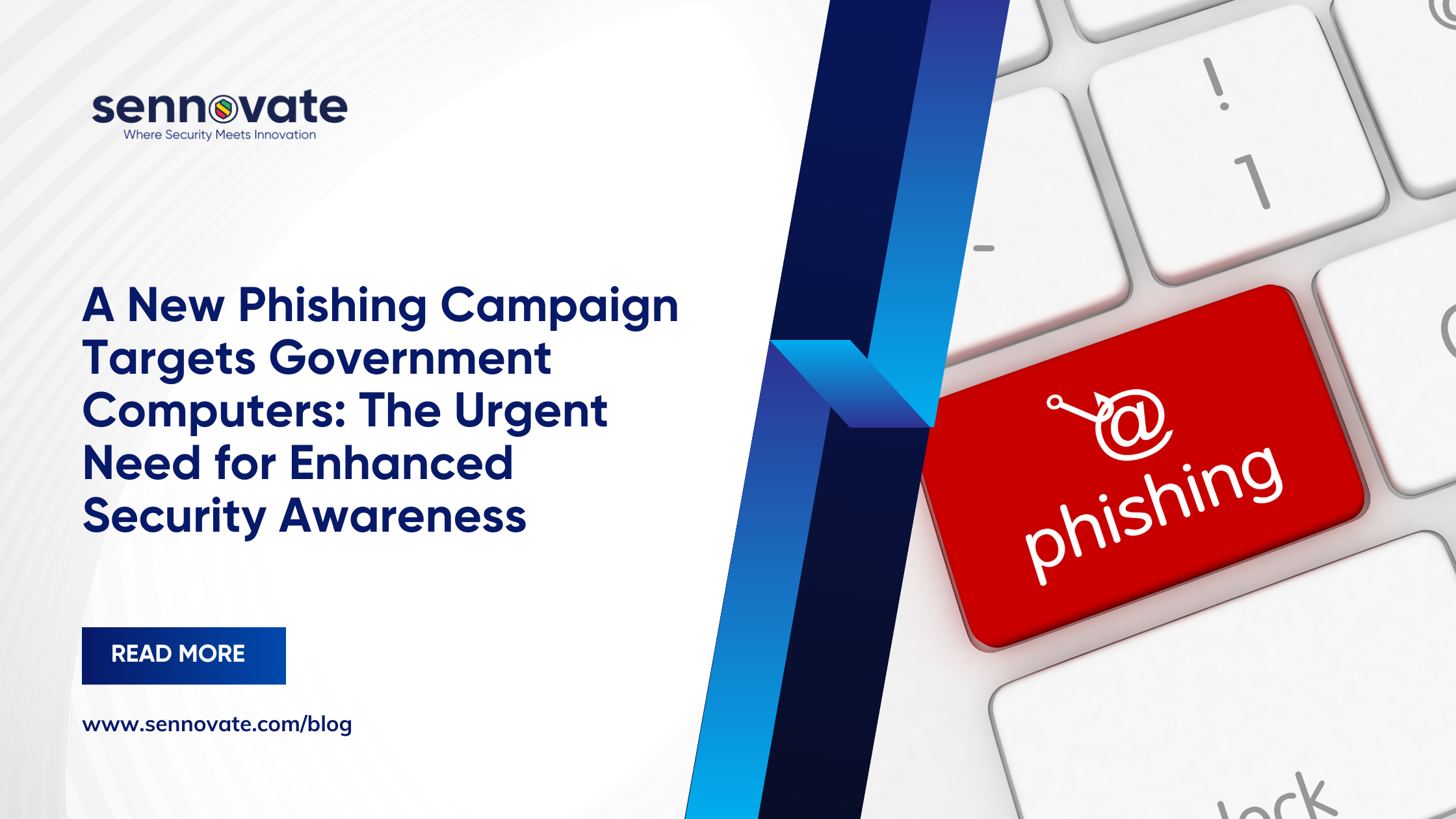
A New Phishing Campaign Targets Government Computers: The Urgent Need for Enhanced Security Awareness
Cybersecurity threats continue to evolve, and a recent warning from the Computer Emergency Response Team of Ukraine (CERT-UA) has highlighted the critical nature of the ongoing cyber warfare targeting governmental institutions. This alert pertains to a new phishing campaign that disguises itself as communications from the Security Service of Ukraine, aiming to infect government systems with a potent malware variant known as ANONVNC.
Understanding the Threat: How the Phishing Campaign Operates
The attackers have crafted an elaborate phishing scheme that involves sending mass emails that appear to originate from the Security Service of Ukraine. These emails contain a ZIP archive, which, when opened, reveals an MSI installer that deploys the ANONVNC malware. This malware leverages an open-source tool called MeshAgent, which allows the perpetrators to gain stealthy and unauthorized access to the victim’s computer.
Once installed, ANONVNC provides remote desktop access to the attackers, enabling them to exfiltrate sensitive data, monitor user activities, and potentially disrupt critical operations. This level of access poses a severe threat to national security, as it can lead to data breaches, information theft, and system sabotage.
The Growing Landscape of Cyber Threats in Ukraine
This phishing campaign is not an isolated incident but part of a larger pattern of cyberattacks targeting Ukraine, especially in the wake of ongoing geopolitical tensions with Russia. Since the 2022 invasion, Ukraine has been the focal point of numerous cyber offensives aimed at crippling its digital infrastructure.
CERT-UA has also reported other cyber threats, including attacks by a group known as UAC-0102, which deploys phishing emails containing HTML attachments designed to mimic the login pages of popular services like UKR.NET. By capturing login credentials, these attackers can access sensitive information and compromise user accounts.
In addition to the ANONVNC campaign, another threat actor, UAC-0057, has been using a different malware variant known as PicassoLoader to deploy the Cobalt Strike Beacon tool. This tool is notorious for enabling adversaries to conduct reconnaissance and lateral movements within targeted networks.
The Critical Importance of Security Awareness
The rise of sophisticated phishing campaigns underscores the urgent need for robust security awareness programs. Educating employees about recognizing phishing attempts and understanding the tactics used by attackers is essential in building a resilient defense against such threats.
Organizations must foster a culture of cybersecurity awareness, where employees feel empowered to report suspicious activities without fear of reprimand. Regular training sessions simulated phishing exercises, and ongoing communication about emerging threats can significantly enhance an organization’s security posture.
How Sennovate’s Security Awareness Training Can Help
Sennovate offers comprehensive Security Awareness Training programs designed to equip employees with the knowledge and skills necessary to identify and respond to phishing threats effectively. Our training focuses on:
- Identifying Phishing Attempts: Employees learn to recognize the signs of phishing emails, such as suspicious sender addresses, unexpected attachments, and requests for sensitive information.
- Safe Online Practices: We emphasize the importance of safe browsing habits, including verifying URLs before clicking links and avoiding sharing sensitive information through email.
- Risk Reporting: Employees are trained in the protocols for reporting potential phishing incidents promptly, allowing for quick action to mitigate threats.
- Simulated Phishing Exercises: Regular simulations help employees practice identifying phishing emails in a controlled environment, improving their ability to recognize real threats.
Sennovate’s Security Awareness Training as a Service is a vital component in any organization’s cybersecurity strategy, providing the tools and knowledge needed to defend against sophisticated attacks like the ANONVNC campaign.
Sennovate Helps with Other Proactive Measures
To mitigate the risks posed by these advanced phishing attacks, organizations should implement a multi-layered cybersecurity strategy that includes:
- Advanced Email Security Solutions: Deploying robust email filtering and anti-phishing technologies can help detect and block malicious emails before they reach the user’s inbox.
- Endpoint Protection: Ensuring that all devices connected to the network have up-to-date antivirus and anti-malware software to detect and prevent unauthorized access.
- Regular Software Patching: Keeping all software and systems updated with the latest security patches is crucial in closing vulnerabilities that attackers might exploit.
- Incident Response Planning: Having a well-defined incident response plan ensures that organizations can quickly identify, contain, and remediate any security incidents.
- Network Segmentation: Implementing network segmentation can limit the lateral movement of attackers within the network, reducing the potential impact of a breach.
Conclusion: Staying Vigilant in the Face of Cyber Threats
As cyber threats continue to grow in complexity and frequency, staying informed and prepared is crucial for safeguarding critical infrastructures. This latest phishing campaign targeting Ukraine’s government computers is a stark reminder of the ever-present dangers in the digital landscape and the importance of a proactive and informed approach to cybersecurity.
